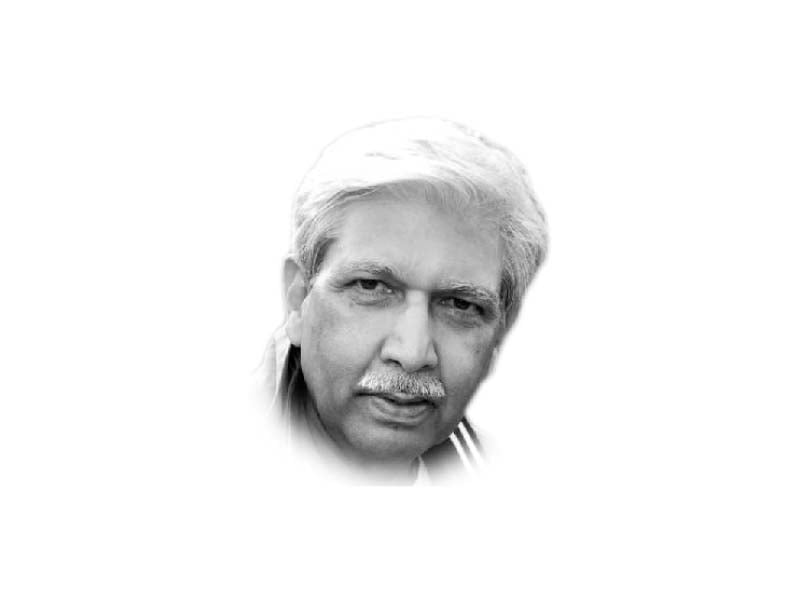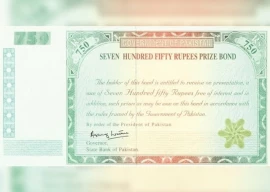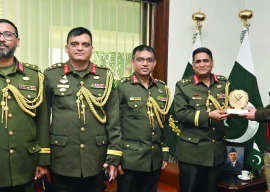
Captain B H Liddle Hart was a British historian and a military theorist from the period between the two great wars. His most famous theory still taught at military schools and war colleges around the world is of the indirect strategy. He theorised that frontal assault, or steel-on-steel, hardly bore fruit; rather extracted a heavy price in men and material without any dividend to the aims of war. That gave birth to stratagem, and manouvre warfare. To him each war had a political purpose and if war did not contribute to political purpose, it was futile and wasteful. He thus proffered: "In all decisive campaigns, the dislocation of the enemy's psychological and physical balance has been the vital prelude to the overthrow." This forces the enemy in a lag ceding initiative as it now plays catch-up. To this end pitching your best against adversary's best is a losing proposition and an unproductive undertaking.
Review what ails us as a nation and engages our most attention, especially in the domain of security along the borders. Afghanistan stands out for its currency and daily occupation. Balochistan, bordering Iran, is a long festering wound with little to no hope for immediate relief. Kashmir, that we keep close to our heart, has had to be put back in priority for the two pressing problems above. Mere military force or its impact, that we could count on for effect and influence, has mellowed before non-kinetic factors like economic and technological inadequacies. Economic strength is wherefrom a nation will derive relevance and influence. China shines as an unmatched example in this category.
While we celebrated the end of war in Afghanistan when the US decided to evacuate peace hasn't returned to the region. TTP and ISIS-K continue to occupy our minds and focus. The Afghans may yet again boast being the 'graveyard of empires' but without true dividends in economic and social progress. Unless Afghans as a nation change their ways and disposition to the two terror outfits that still use their soil the change of guard will only mean replacing one contentious and ineffective order with another conflictual and ungovernable one. That is zero progress despite the end of war - except the bombs don't rain down anymore. An active cross-border engagement between militants and neighbouring Pakistan may seem a convenient distraction away from Afghanistan's internal inadequacies in a Taliban regime but isn't the recipe that will bring solace and comfort to a nation blighted by four decades of war.
For Pakistan it is throwing its most valuable asset, its military, in the way of a futile war even if it be to fight the evil unleashed by groups like the TTP. Following the Liddle Hart line of thinking forcing Pakistan's military to fight ungainly battles is any enemy's dream come true. It takes Pakistan away from its strategic purpose of finding peace enabling sustainable economic activity while conserving its strength against its most critical enemies. Considering Pakistan's internal instability is rooted in its dismal economic state resulting in social unrest displayed in acute political division, military and kinetic options aren't the most optimal means to creating an environment of stability and predictability. The presence of war, even if irregular or unconventional, scares investment away, slowing the economy down till it merely exists. KP and Balochistan economies are a case in point even if in relative terms.
If Pakistan is struggling to attain peace to usher economic stability Afghanistan too is shorn of any meaningful social and economic progress. Warring groups on its soil are a continuation of kinetic wars if of another kind spawning equal unease for its own business environment denying its people the benefit of peace and predictability. Looked at from that angle both Pakistan and Afghanistan are in desperate need for a common commodity, peace, tranquility and predictability which can help establish more assured environment for economic activity in their respective countries.
Wars are not the only means to win peace, especially if those are long and protracted. Pakistan's brush with such wars in the recent past points to a long painstaking effort invoking huge costs in blood, sweat and toil. Peace attained at such cost was at best transitory till another round loomed. In the journey of nations when events shape at breakneck speed, time is of essence. In the age of accelerations to lag is to cede and ultimately become irrelevant. We are on the verge of becoming irrelevant in this spate of unending wars. This is where reviewing and reinvoking Liddle Hart and his theory of indirect strategy becomes important.
If war isn't working or not working fast enough, change the paradigm of engagement. Considering, almost a 100 million people live on the other side of Afghanistan in Central Asia which has energy to trade and share with consuming societies in Pakistan and beyond, Afghanistan's traditional status of a Great Game buffer must be converted into a link instead which can join markets to commodities. This will turn Afghanistan from buffer to a strategic enabler. Absence of strife and war and a workable infrastructure plan can convince Afghanistan to instead become the economic hub for the entire region. China urged by Pakistan and Afghanistan must take the lead and create an economic zone linking all the countries in the region into an economic bloc. The arrangement must be reduced into a West Asian Trading Order.
Wakhan in Badakhshan province of Afghanistan is already in the news. China has a favourable ingress in the region. It is time to model Wakhan from a forced separator into a connector. Away from the hullabaloo in the media on some adventurous mentions it will need a more organised and deeply thought and coordinated plan among nations to determine if indeed using a part of Afghanistan as an adhesive than a separator of regions is something that will enable a China-led and China-sponsored economic space. Afghanistan, China, Tajikistan and Pakistan can be the founding members with others to follow.
If the model succeeds, we could look at creating similar connective zones of engagement, primarily trade and economic, among adjoining regions of FATA and the neighbouring provinces of Afghanistan and then Balochistan-Iran contiguity. It will address underlying unease and disaffection, hopefully enthusing common stakes and purpose to ensure peace for maximising prosperity through peace. When direct strategy to earn peace is elusive, a change of stratagem may just work. Peace after all is what underlies any chance of economic recoupment and promise of progress and development. If we make it a choice for the entire region, we can win peace for all. It can often open more pathways to lingering problems including legacy issues.
In strategy, the longest way round is often the shortest way home.

1736321208-0/Untitled-design-(14)1736321208-0-405x300.webp)

1737096247-0/BeFunky-collage-(59)1737096247-0-165x106.webp)















COMMENTS
Comments are moderated and generally will be posted if they are on-topic and not abusive.
For more information, please see our Comments FAQ